12 Best Companion Plants for Asparagus (And What to Avoid)
Growing asparagus can be a rewarding experience, especially when it is paired with the right companion plants. Some plants work well by boosting asparagus growth, while others help protect it from pests. Choosing the right companions is key to creating a thriving garden. Certain plants can enhance the soil, improve moisture retention, and even provide much-needed shade. It is also important to know which plants to avoid to keep your asparagus healthy and productive.
This post may contain affiliate links, which helps keep this content free. Please read our disclosure for more info.
Best Asparagus Companion Plants – Tomatoes
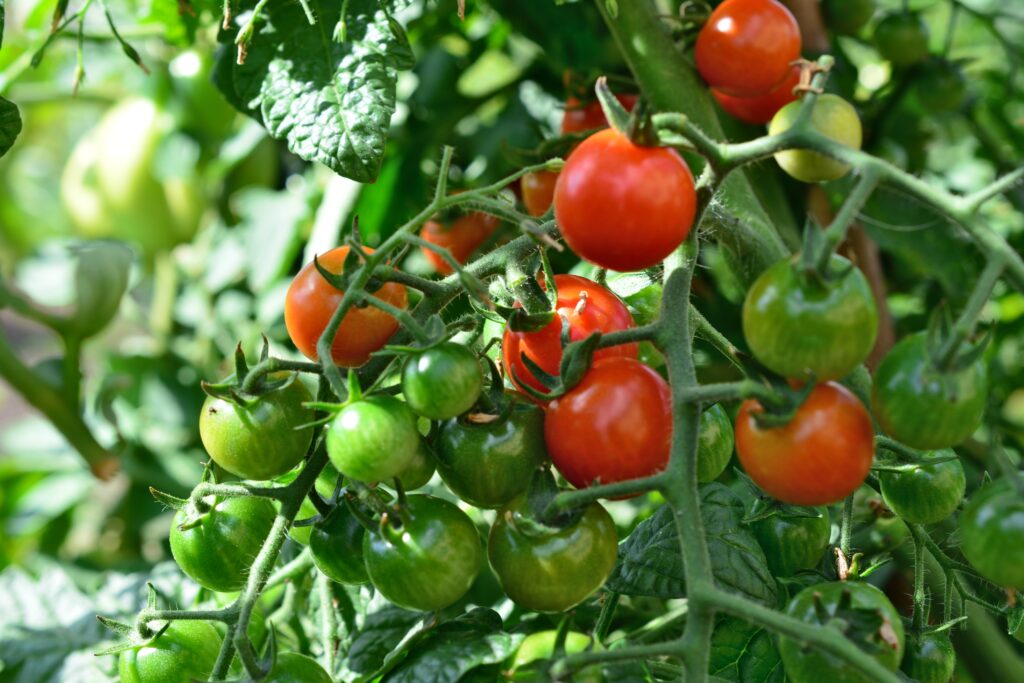
Tomatoes and asparagus make great companions because they help repel pests that can harm each other. Tomatoes release compounds that can deter asparagus beetles, a common pest for asparagus. Plant tomatoes near asparagus to take advantage of their natural pest-repelling properties. Make sure to space the plants properly and provide adequate sunlight for both to thrive.
Tomatoes need full sun and well-drained soil to grow successfully. Be mindful of watering, as tomatoes prefer moist soil but can suffer from root rot if overwatered. Ensure good airflow around the plants to prevent diseases. Regular pruning will help both tomatoes and asparagus grow better by allowing more sunlight to reach their roots.
Basil
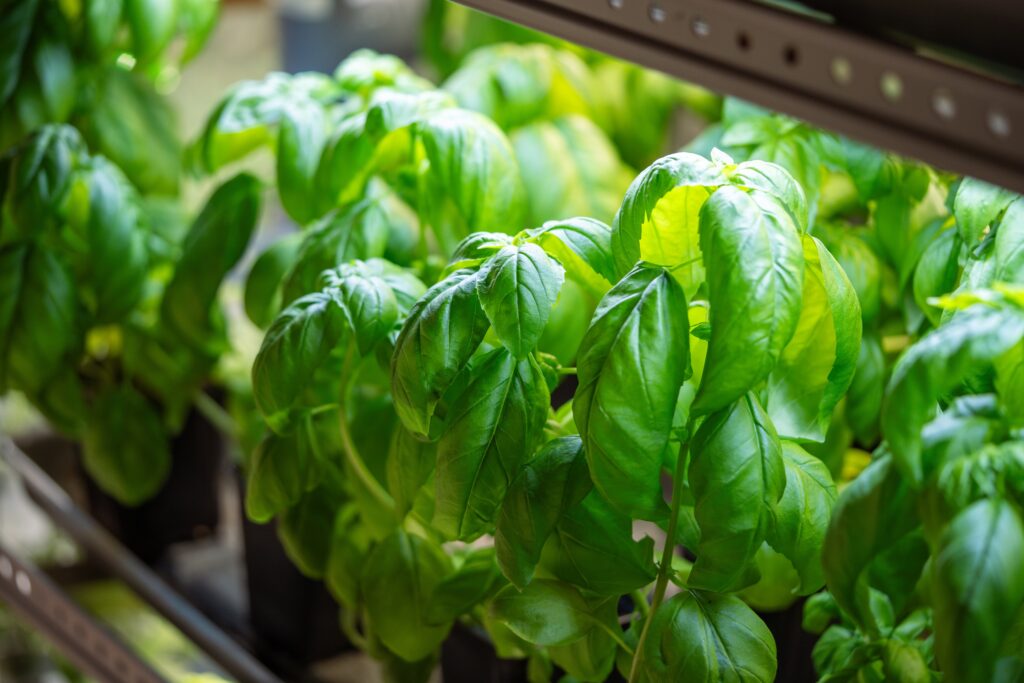
Basil is another excellent companion for asparagus as it can help repel insects like mosquitoes and aphids. Its strong scent distracts pests from the asparagus and other nearby plants. Growing basil alongside asparagus can also improve the flavor of your asparagus due to its aromatic oils. Make sure basil receives plenty of sun and water to stay healthy.
Basil thrives in warm weather and well-drained soil. It does well in containers or directly in the ground. Trim the basil regularly to promote new growth and prevent it from becoming too leggy. Basil also benefits from regular feeding with an organic fertilizer to encourage lush growth.
Parsley
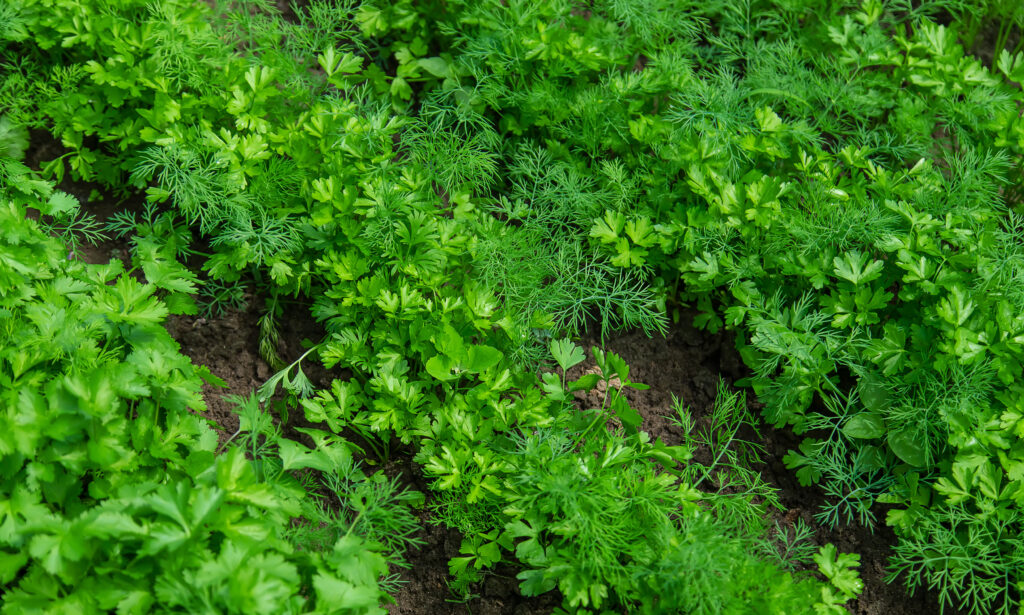
Parsley is a great companion for asparagus because it attracts beneficial insects that pollinate asparagus and help keep pests at bay. The plant’s fine foliage offers a natural ground cover that helps retain moisture for the asparagus. Parsley does well when planted in rich, well-drained soil, making it an ideal neighbor for asparagus. Provide it with adequate sunlight and water for optimal growth.
To care for parsley, ensure it gets regular water, but do not let it sit in soggy soil. This herb also benefits from occasional pruning to encourage new growth. Parsley is relatively easy to grow in most climates and can be harvested throughout the growing season. Make sure to remove any flowers that may appear, as they can reduce the flavor of the leaves.
Marigolds
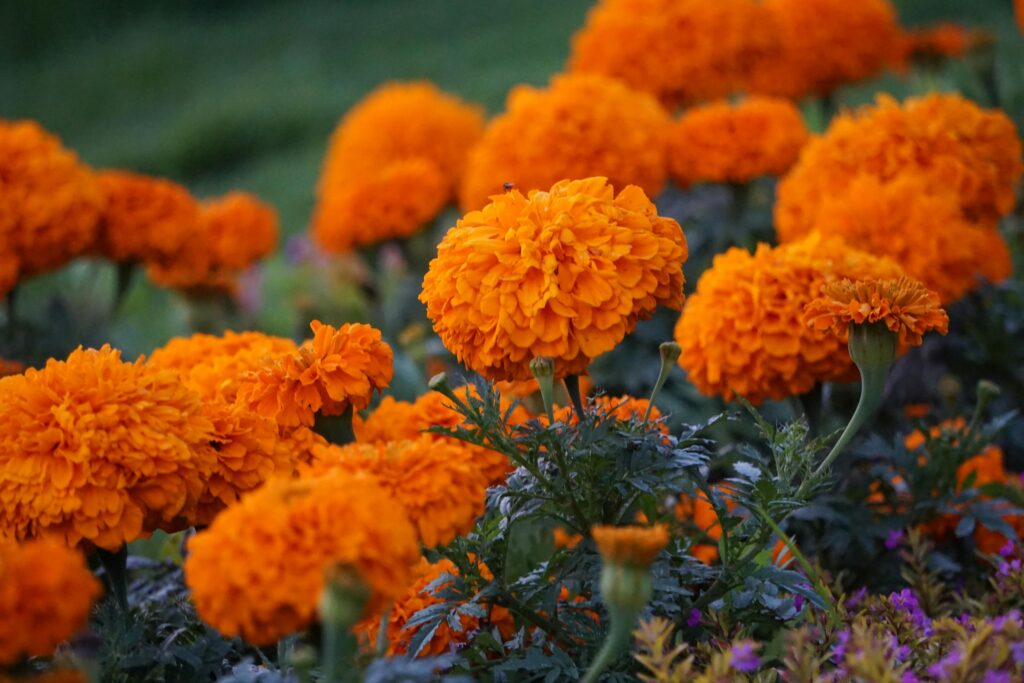
Marigolds are a fantastic companion for asparagus as they help deter pests like aphids and nematodes. Their vibrant flowers not only brighten up the garden but also release natural compounds that repel harmful insects. These flowers are easy to grow, making them a low-maintenance companion for asparagus. Marigolds also help to improve the overall health of the soil with their deep root systems.
Plant marigolds in a sunny location with well-drained soil. They require minimal care, only needing occasional watering and deadheading to maintain a healthy appearance. Marigolds thrive in warm weather and can even help improve the growth of nearby plants by providing a natural pest barrier. They are perfect for any garden looking to keep asparagus free from pests.
Cucumbers
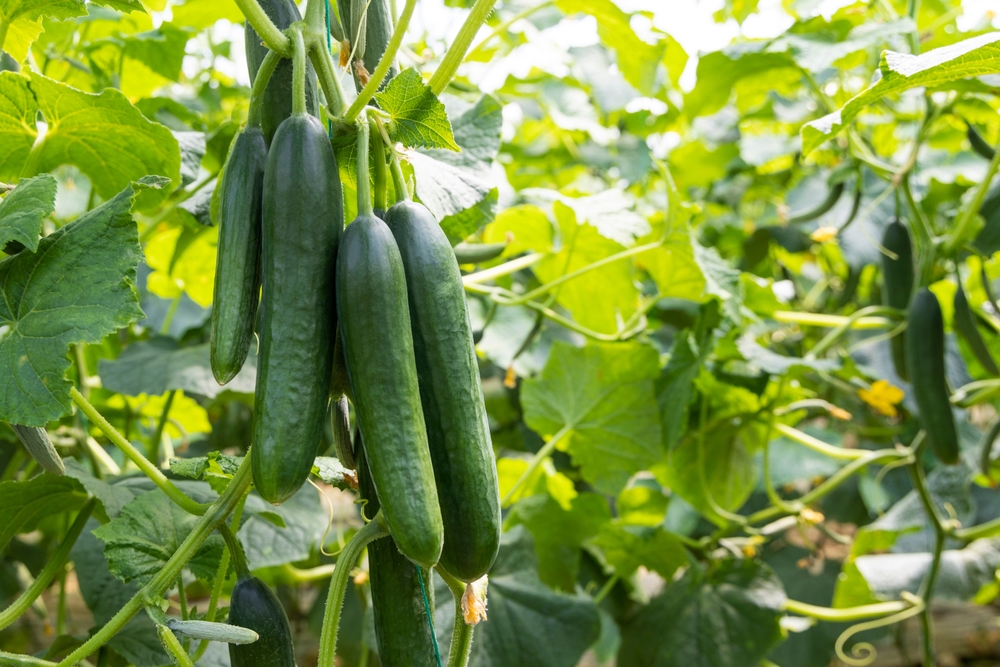
Cucumbers and asparagus pair well together because cucumbers help keep weeds down, reducing competition for nutrients. Cucumbers also provide natural shade to the asparagus, protecting it from excessive sun exposure. The large leaves of cucumber vines help maintain moisture in the soil, which asparagus benefits from during dry spells. Space cucumbers properly to avoid overcrowding the asparagus.
Cucumbers require full sun and rich, well-draining soil to thrive. They need regular watering to keep the soil moist but not waterlogged. Mulching around cucumbers can help retain moisture and keep weeds in check. Be sure to train cucumber vines vertically or use a trellis to prevent them from overshadowing the asparagus.
Lettuce
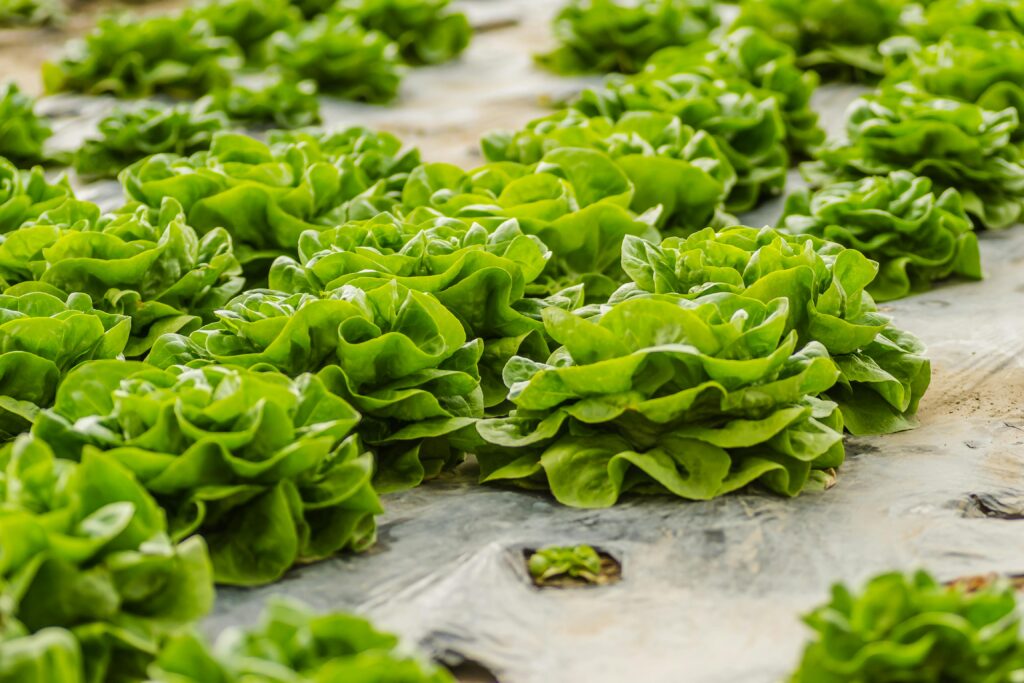
Lettuce is a great companion for asparagus because it grows quickly and does not compete for nutrients. The shallow roots of lettuce do not interfere with the asparagus, allowing both plants to thrive in the same space. Lettuce provides a natural ground cover that helps maintain moisture levels in the soil. It is easy to grow and can be harvested in just a few weeks.
Lettuce prefers cooler temperatures, so it should be planted early in the season, before the asparagus fully matures. Keep the soil moist, and ensure lettuce receives some shade in the hotter months. It does best in fertile, well-draining soil. Harvest lettuce regularly to prevent it from bolting and to keep the plant productive.
Spinach
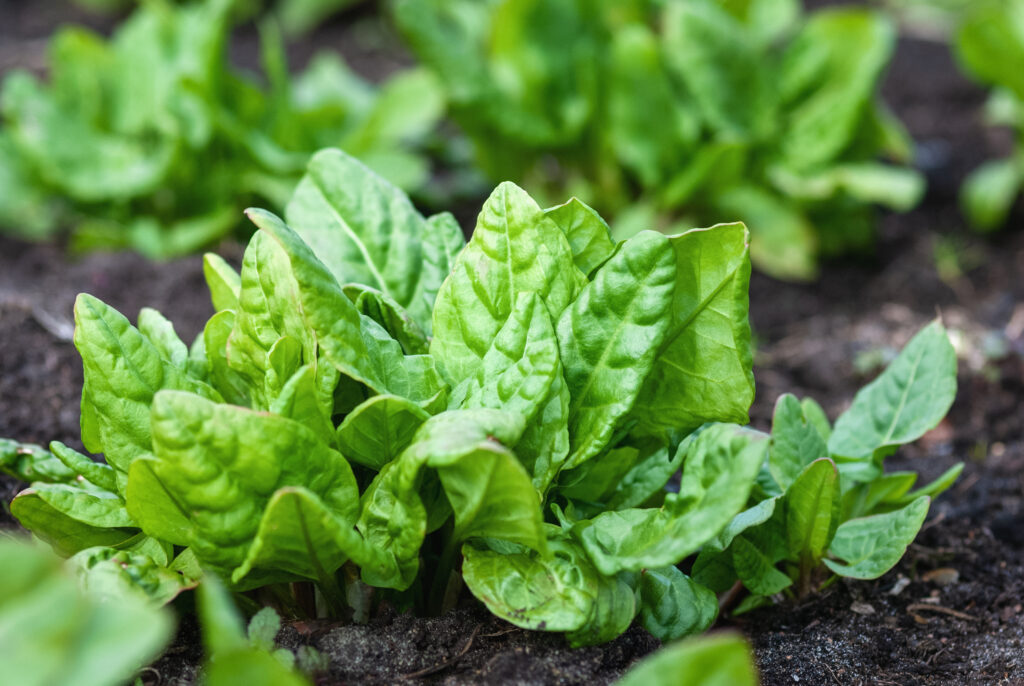
Spinach is another great companion for asparagus due to its ability to grow quickly without overshadowing the asparagus. Like lettuce, spinach has shallow roots that do not compete for space with the deeper roots of asparagus. Spinach also provides additional ground cover, helping retain moisture and suppress weeds around the asparagus. This makes spinach an easy and effective companion plant.
Spinach thrives in cooler weather, so it is best planted early in the spring before the heat of summer arrives. Ensure it has enough water to keep the soil consistently moist, especially during dry periods. Spinach does well in well-drained, slightly acidic soil. Regular harvesting of the outer leaves will encourage more growth and prevent the plant from bolting.
Chives
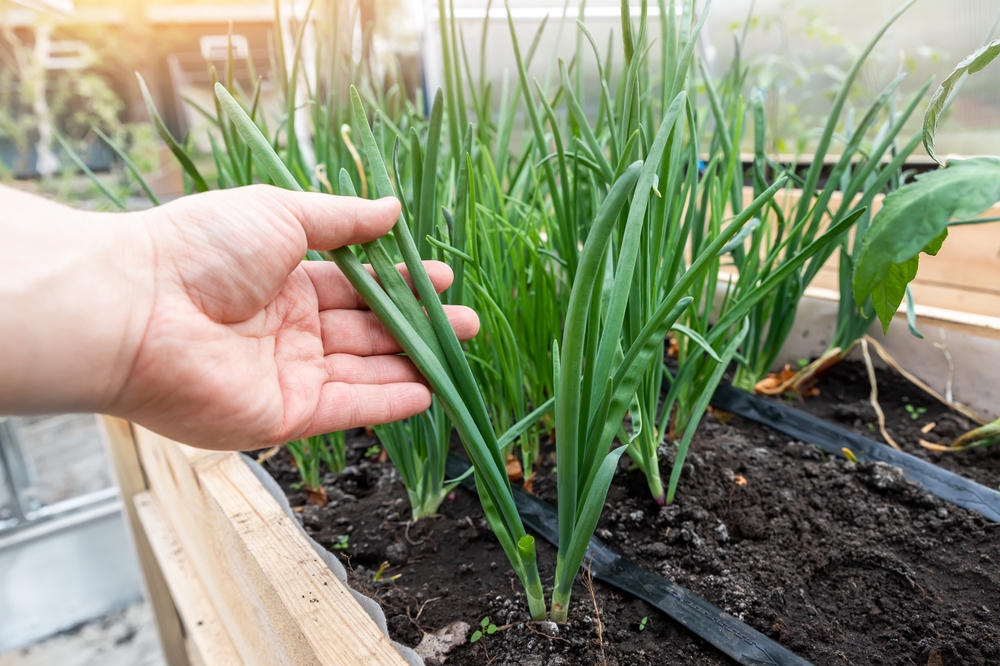
Chives are a beneficial companion plant for asparagus, as their strong scent can repel pests like aphids and beetles. Chives are easy to grow and add a mild onion flavor to various dishes, making them a useful herb to have in the garden. They can also help improve the overall soil quality by attracting pollinators to the area. Chives work well in combination with asparagus because they do not compete for space or nutrients.
To care for chives, plant them in well-drained, rich soil and provide them with full sun. Water them regularly, but ensure the soil does not become waterlogged. Chives benefit from being divided every few years to keep them healthy and productive. They can be harvested throughout the growing season, making them a great addition to your garden.
Oregano
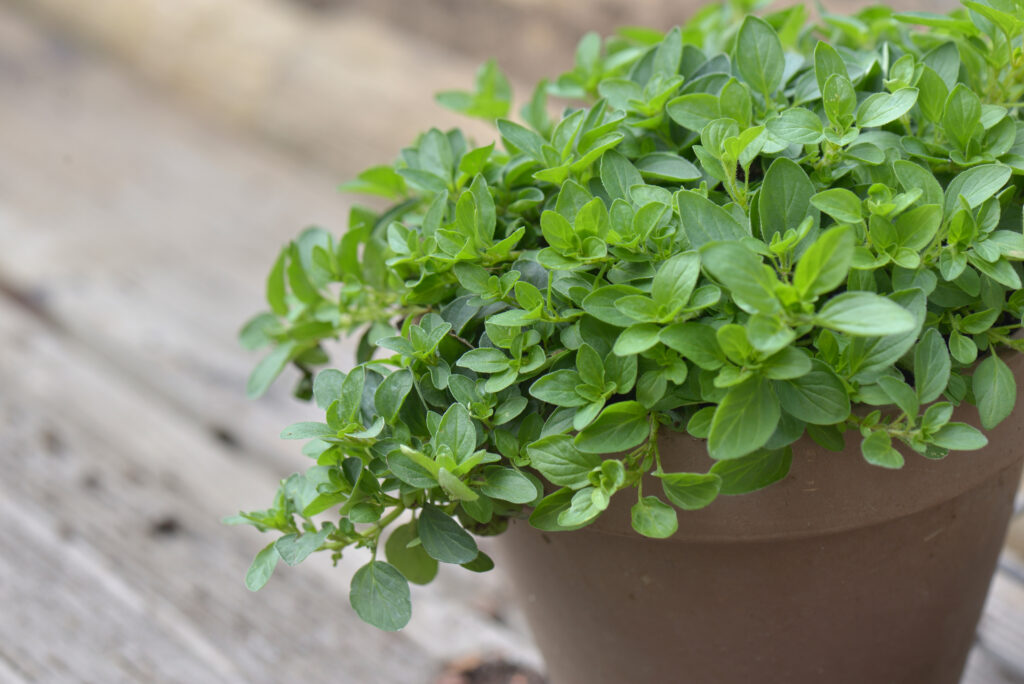
Oregano is an excellent companion plant for asparagus because it attracts beneficial insects that help pollinate the asparagus. Its strong aroma also deters pests like aphids and spider mites, which can be harmful to asparagus. Oregano is easy to grow and thrives in well-drained soil with plenty of sunlight. It also does not compete with asparagus for space, as it has a shallow root system.
Plant oregano in a sunny location with well-draining soil and water it sparingly once established. This herb prefers slightly dry conditions and is quite hardy once it is well-established in your garden. Regular pruning will help keep oregano under control and encourage bushier growth. Oregano’s fragrant leaves and ability to repel pests make it an ideal companion for asparagus.
Thyme
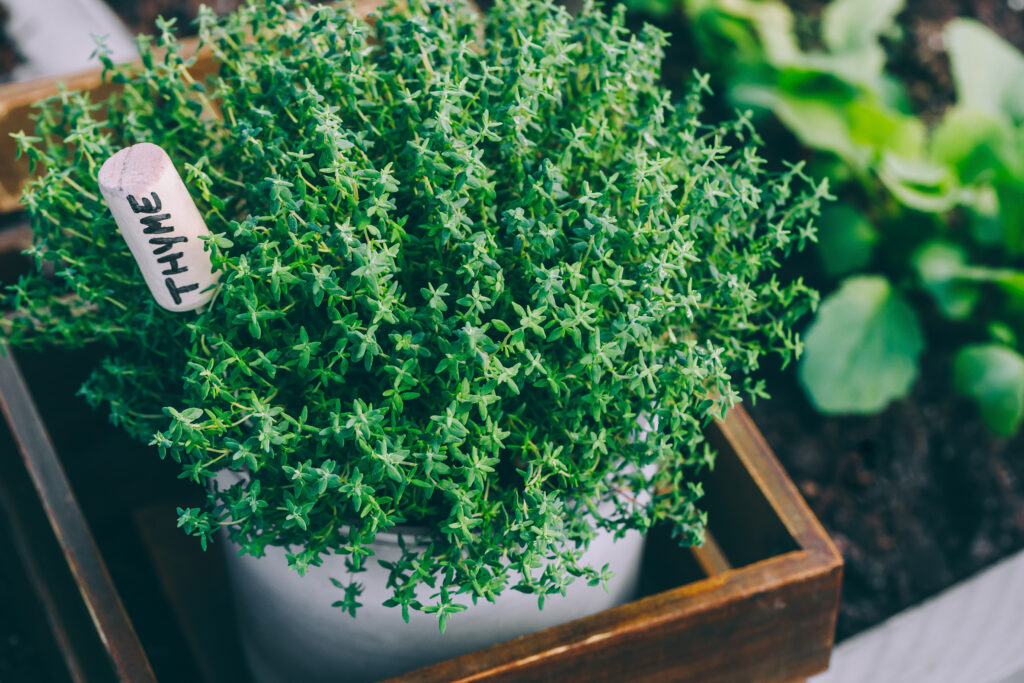
Thyme is a great companion for asparagus because it is a low-growing herb that does not compete for nutrients. Its small leaves help suppress weeds and maintain moisture levels in the soil, which is beneficial for asparagus. Thyme also attracts beneficial pollinators and repels pests like cabbage worms and aphids. It is an easy herb to grow and adds flavor to many dishes.
Plant thyme in well-drained soil and in a location that receives full sunlight. It is a drought-tolerant herb, so be careful not to overwater it. Thyme benefits from occasional pruning to keep it from becoming leggy and to encourage a compact growth habit. This herb thrives in warm, sunny conditions, making it a perfect addition to any garden.
Horseradish
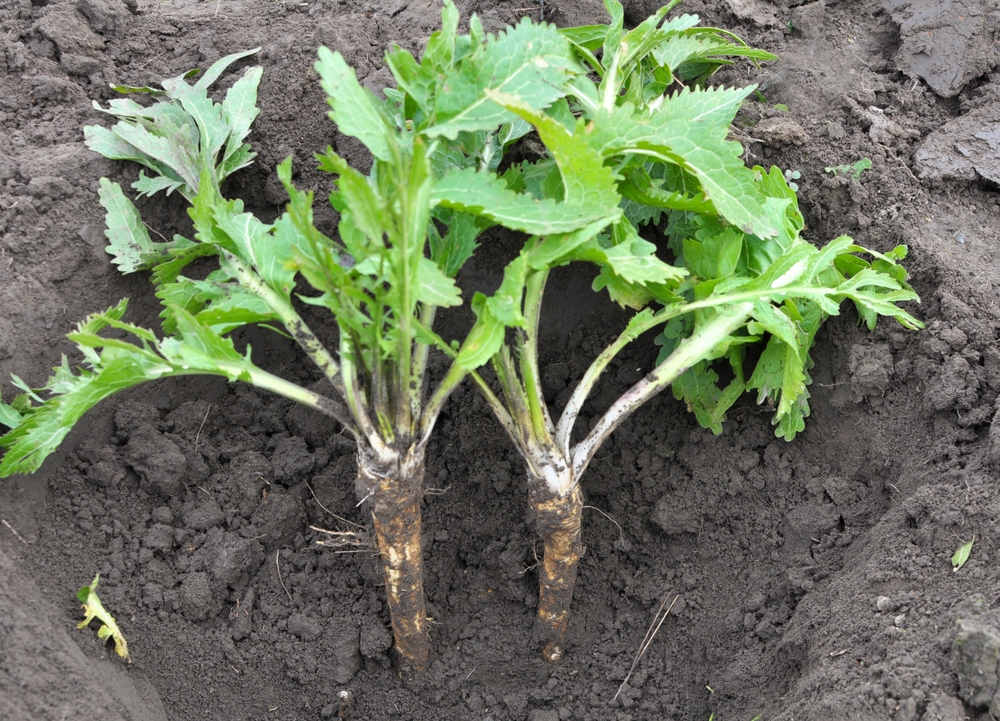
Horseradish is a unique companion plant for asparagus because it helps deter pests like aphids and asparagus beetles. Its large leaves also provide some shade to the asparagus, helping protect it from excessive sunlight. Horseradish grows well in a variety of soil types and can tolerate both sun and partial shade. It is also easy to grow and adds a sharp, spicy flavor to your kitchen.
To grow horseradish, plant it in well-drained soil and ensure it gets plenty of sunlight. Be cautious when planting it, as horseradish can spread quickly and become invasive. Regular harvesting of the roots will help control its spread and keep the plant manageable. As a companion to asparagus, horseradish provides pest control and shade, making it a valuable addition.
Beets
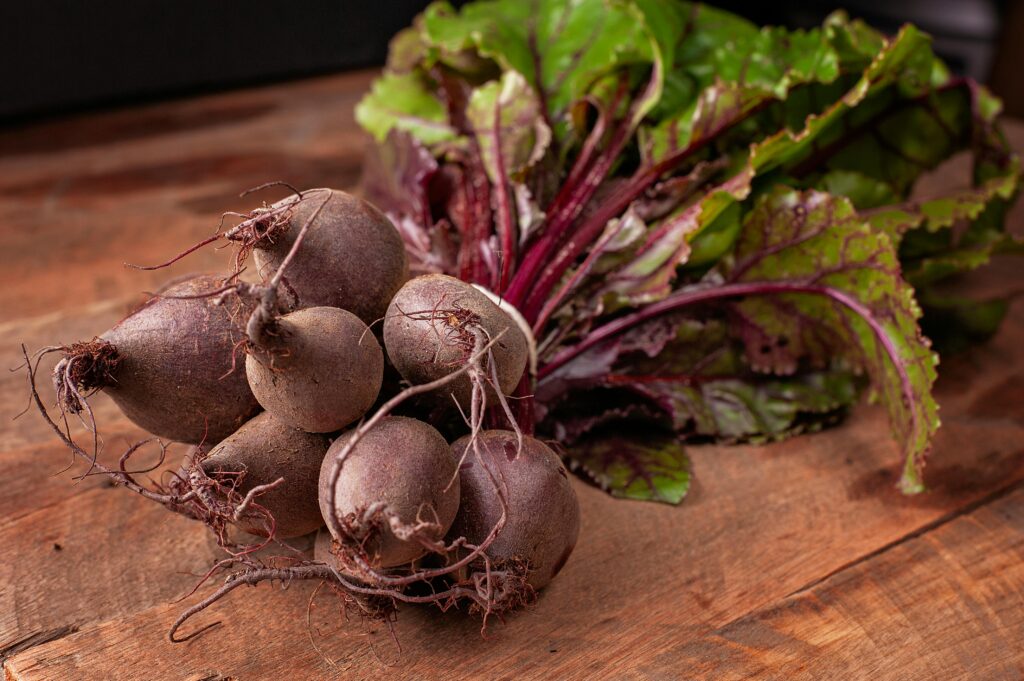
Beets are great companions for asparagus because they do not compete for nutrients and can be harvested early in the season, allowing more space for the asparagus to grow. Their deep roots help aerate the soil, improving root growth for both plants. Beets are also easy to grow and provide an edible harvest, making them a dual-purpose companion. They do well in cooler temperatures, so planting them early in the season works best.
To care for beets, plant them in well-drained, fertile soil with full sun exposure. Beets need consistent watering to ensure healthy root development, but avoid overwatering. They grow quickly, so they can be harvested in as little as 60 to 80 days. Harvest them early to allow asparagus to continue growing without competition for space.
Plants To Avoid as Asparagus Companion Plants – Onions

Onions and asparagus are not compatible companions because onions release sulfur compounds that can interfere with the growth of asparagus. These compounds may inhibit the asparagus roots, slowing down their development. Additionally, onions have shallow roots, which can compete with the deeper roots of asparagus for water and nutrients. It is best to avoid planting onions near asparagus to maintain healthy growth for both plants.
Onions also attract pests like onion flies, which can spread to other plants nearby. Although they are useful in many gardens, they do not make good neighbors for asparagus. The competition for space and nutrients can hinder the growth of both crops. It is recommended to plant onions in a separate area of the garden away from asparagus.
Garlic
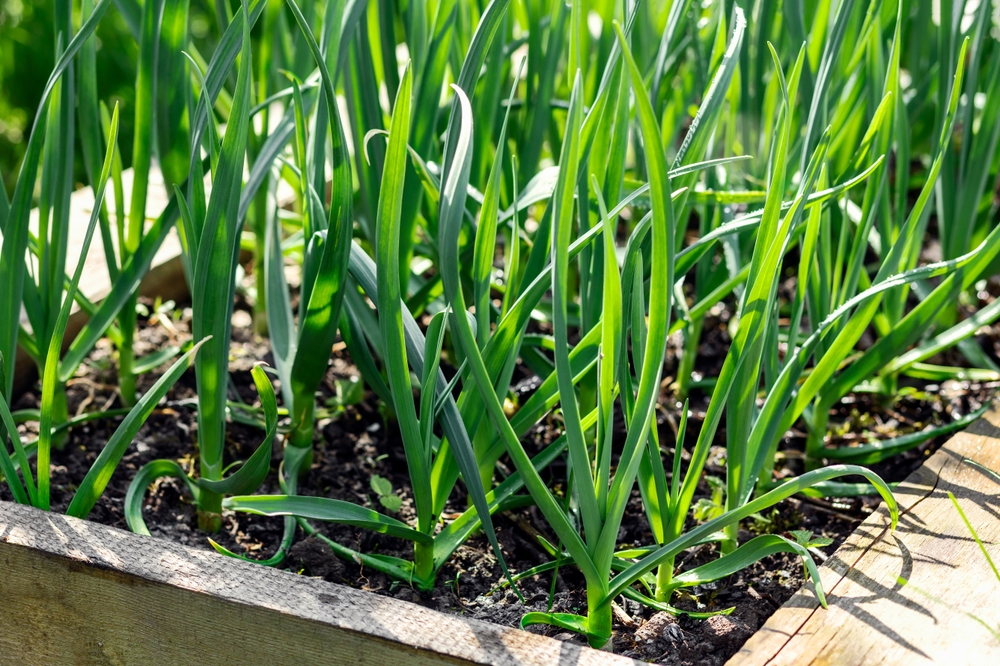
Garlic, like onions, can cause issues when planted near asparagus due to the sulfur compounds it releases. These compounds can negatively impact the asparagus plants, slowing their growth and reducing overall productivity. Garlic also has shallow roots, making it a poor companion for asparagus, as it competes for water and nutrients. For the best results, keep garlic separate from asparagus plants.
While garlic is excellent at repelling certain pests, its presence can disrupt the health of asparagus. The two plants can be prone to competition, making it difficult for both to thrive. It is better to plant garlic in a different part of your garden, away from asparagus, to avoid these issues. Keeping these plants separate ensures both will have the space and resources they need to flourish.
Carrots
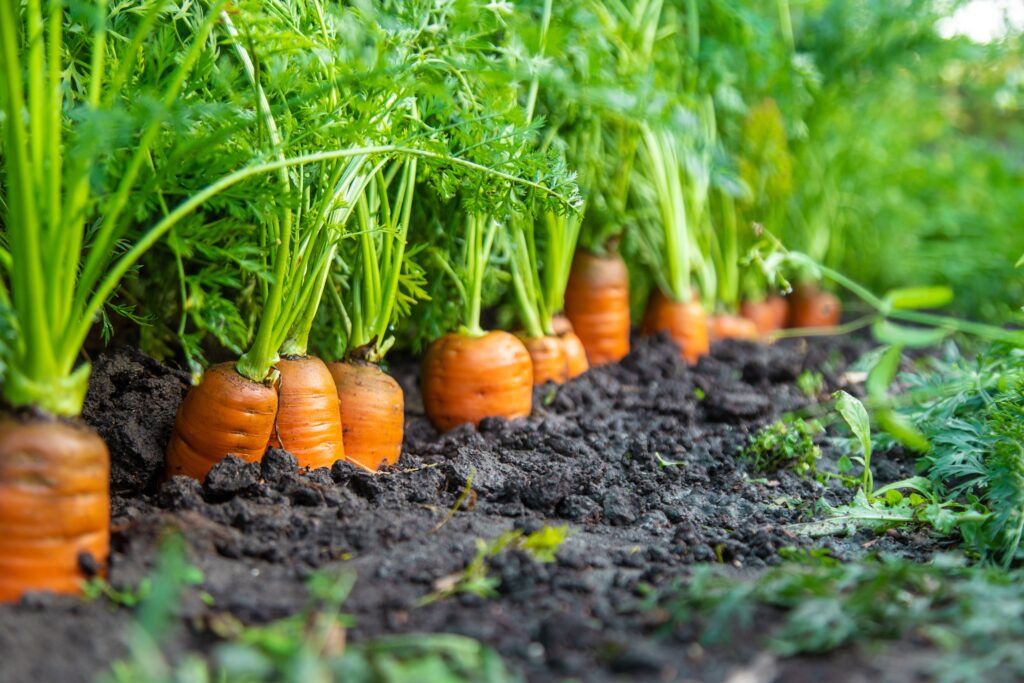
Carrots may not be the best companion for asparagus because their long taproots can interfere with the asparagus plants. Carrots tend to grow deep into the soil, and their roots can compete with asparagus for space and nutrients. Although carrots are a beneficial crop in other gardens, they may cause stress to asparagus when planted nearby. It is better to avoid planting them together.
Carrots also require different growing conditions than asparagus, particularly in terms of spacing and water needs. Their growth can be hindered by asparagus plants, which need a fair amount of space to thrive. Keeping carrots in a separate area of the garden can help ensure that both plants get the proper care and room to grow. Avoid planting them next to asparagus to keep both healthy.
Beans

Beans can be problematic when planted near asparagus, as they tend to attract pests like aphids, which can spread to the asparagus. Beans also have shallow roots, which can compete with asparagus for water and nutrients. While beans can benefit from a trellis or support system, planting them too close to asparagus may lead to overcrowding. This competition for space can negatively affect the growth of both plants.
Beans also require different soil conditions, and their rapid growth may shade the asparagus, preventing it from receiving enough sunlight. For the best results, it is advisable to plant beans in a different section of your garden, away from the asparagus. By keeping the two crops separate, you can avoid the competition for resources and help both plants thrive.
Cabbage
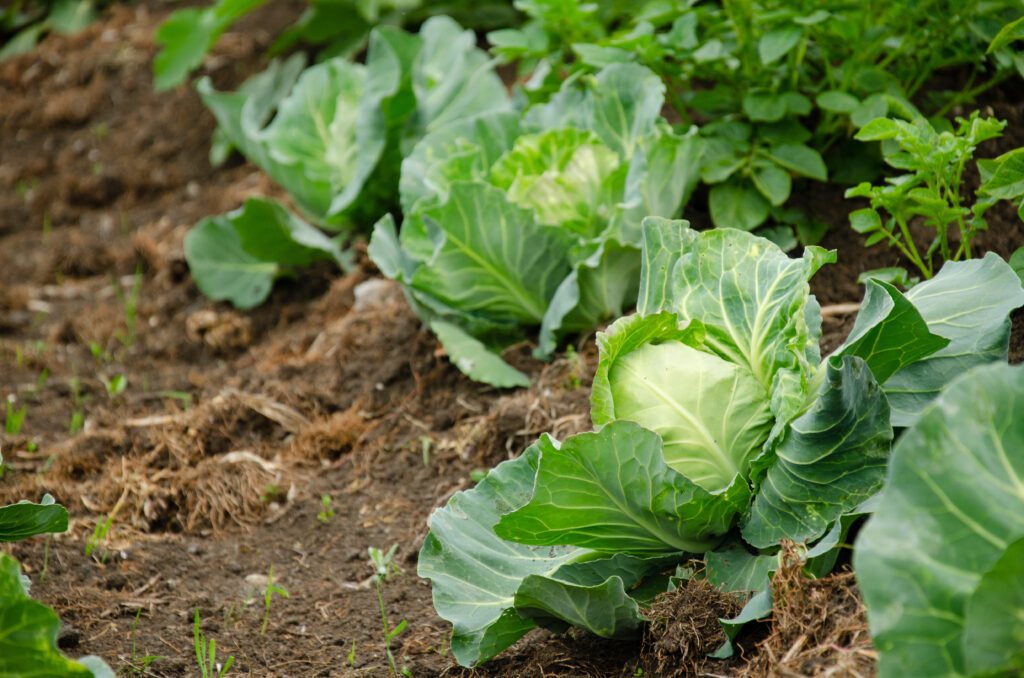
Cabbage and other brassicas like broccoli and cauliflower do not make good companions for asparagus due to their tendency to attract pests like caterpillars and aphids. These pests can quickly spread to asparagus plants, leading to infestations. Brassicas also require a lot of nutrients, which can put stress on the asparagus. It is better to avoid planting cabbage near asparagus to reduce pest-related issues.
Cabbage also grows large and can shade out asparagus, making it harder for the asparagus to get the sunlight it needs. The competition for space and nutrients can stunt the growth of both plants. Keeping cabbage in a different garden area will help both crops grow without competing for resources. Avoid this pairing to maintain a healthy and productive garden.
Potatoes
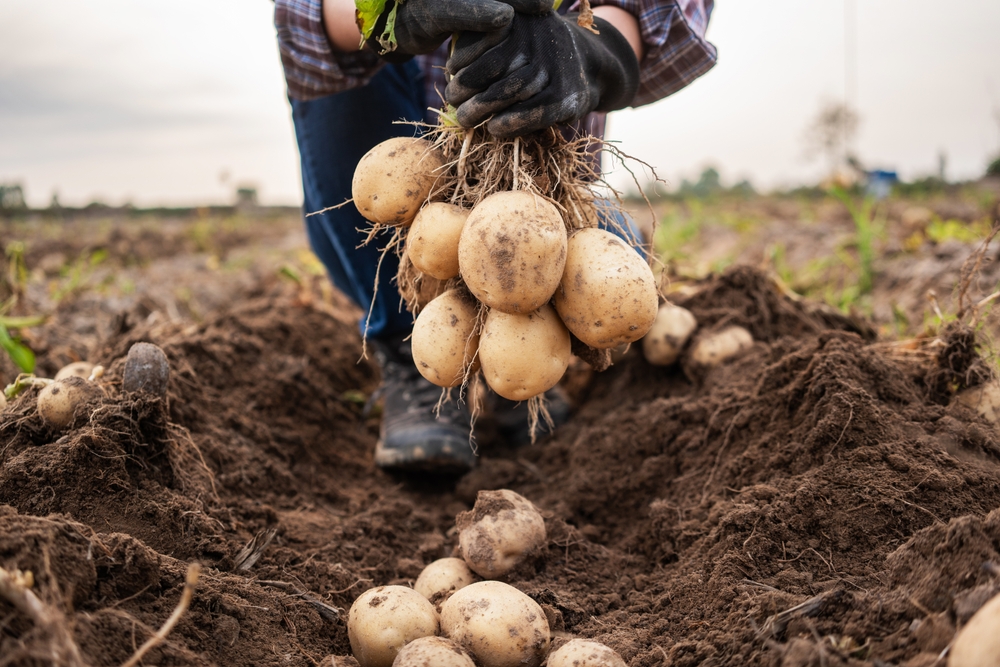
Potatoes are another plant that should be kept away from asparagus because they can attract pests like aphids and flea beetles. These pests can damage the asparagus and affect its overall health. Potatoes also have deep roots that compete for nutrients with asparagus, especially during the growing season. It is best to plant potatoes in a separate area to prevent these issues from affecting your asparagus.
Additionally, potatoes need more space to spread out, and their growth can crowd asparagus plants. Potatoes also require a significant amount of water, which may stress the asparagus if both are planted too close. Keep potatoes in a separate part of your garden to avoid competition for resources. This will allow both crops to thrive without interfering with each other.
Pairing asparagus with the right companion plants can help create a thriving and low-maintenance garden. When you choose plants that complement asparagus, you can enjoy better growth and protection from pests. Avoiding incompatible plants ensures your asparagus receives the space and nutrients it needs to flourish. Careful selection of companions will make a big difference in the long-term success of your garden.
This article originally appeared on Avocadu.
